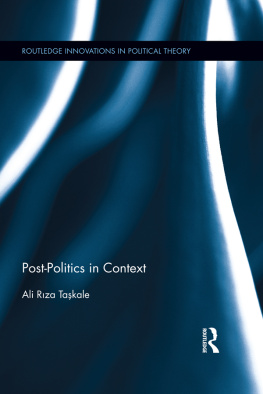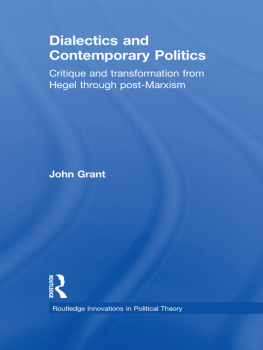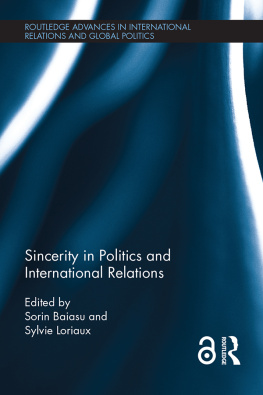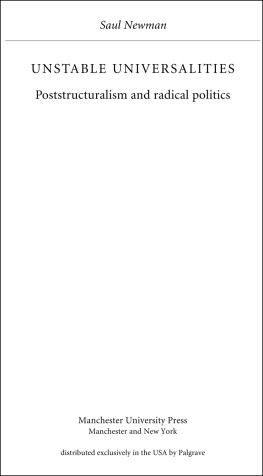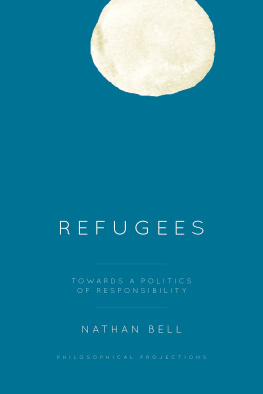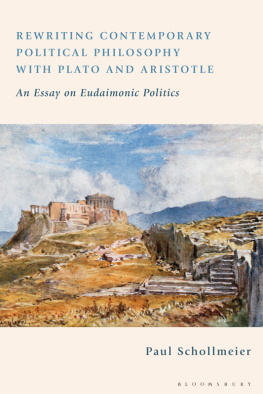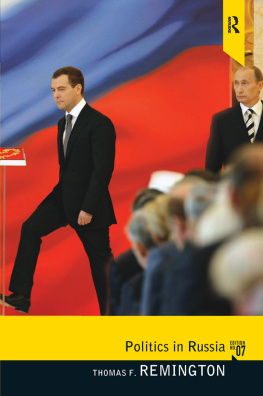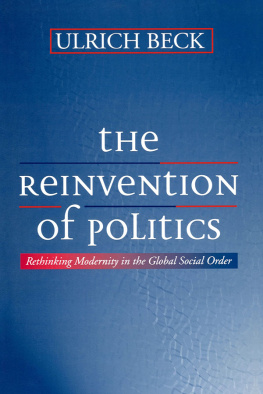Post-Politics in Context
A very forceful and compelling argument as to the post-political nature of neoliberal societies
Julian Reid, University of Lapland, Finland
In this theoretically sophisticated and wide-ranging book, Taskale shows how regimes of power are consolidated and work through affective logics. With a historically informed analysis and rich illustrative examples, he explores contemporary politics and shows why it fails to deliver.
Mustafa Dike, Ecole dUrbanisme de Paris and LATTS
As disciplines, Politics and International Relations remain dominated by ideas drawn from traditions of liberal internationalism and political realism in which political imagination is preoccupied with command and order, rather than with disruption and emancipation. Yet, they have failed to offer adequate answers to why political action is foreclosed in contemporary times.
Proposed through a historically informed engagement with seminal thinkers, including Walter Benjamin, Friedrich Nietzsche, Gilles Deleuze, and Michel Foucault, and examples from films and contemporary events, Ali Rza Takale presents an original and much needed new perspective to interpret politics in our contemporary societies. He argues that post-politics is a counterrevolutionary logic which aims to create a society without conflict, struggle and radical systemic change.
Post-Politics in Context serves as seminal intervention upon the debate over the depoliticised conditions of contemporary neoliberal society as well as functioning as an introduction to the core theoretical frameworks of alternative tradition of social and political thought in a manner that is lacking in current debates about Politics and International Relations.
Ali Rza Takale is currently an assistant professor of social and political sciences at Hacettepe University, Turkey. His research fields are social and political theory, political philosophy, cinema and political theology. His articles have been published in Society & Space, Theory, Culture & Society and Journal for Cultural Research, along with a number of book chapters in edited volumes.
Routledge Innovations in Political Theory
For a full list of titles in this series, please visit http://www.routledge.com
| 59 | Time, Memory, and the Politics of Contingency |
Smita A. Rahman
|
| 60 | Michael A. Weinstein |
| Action, Contemplation, Vitalism |
Edited by Robert L. Oprisko and Diane Rubenstein
|
| 61 | Deep Cosmopolis |
| Rethinking World Politics and Globalisation |
Edited by Adam K. Webb
|
| 62 | Political Philosophy, Empathy and Political Justice |
Matt Edge
|
| 63 | The Politics of Economic Life |
Martin Beckstein
|
| 64 | The Temporality of Political Obligation |
Justin C. Mueller
|
| 65 | Epistemic Liberalism |
| A Defence |
Adam James Tebble
|
| 66 | Hegel, Marx, and 21st Century Social Movements |
| Democracy, Dialectics, and Difference |
Brian Lovato
|
| 67 | Ideologies of Experience |
| Trauma, Failure, and the Abandonment of the Self |
Matthew H. Bowker
|
| 68 | Post-Politics in Context |
| Ali Rza Takale |
First published 2016
by Routledge
711 Third Avenue, New York, NY 10017
and by Routledge
2 Park Square, Milton Park, Abingdon, Oxon, OX14 4RN
Routledge is an imprint of the Taylor & Francis Group, an informa business
2016 Taylor & Francis
The right of Ali Rza Takale to be identified as author of this work has been asserted by him in accordance with sections 77 and 78 of the Copyright, Designs and Patents Act 1988.
All rights reserved. No part of this book may be reprinted or reproduced or utilised in any form or by any electronic, mechanical, or other means, now known or hereafter invented, including photocopying and recording, or in any information storage or retrieval system, without permission in writing from the publishers.
Trademark notice: Product or corporate names may be trademarks or registered trademarks, and are used only for identification and explanation without intent to infringe.
Library of Congress Cataloging-in-Publication Data
A catalog record for this book has been requested
ISBN: 978-1-138-18851-8 (hbk)
ISBN: 978-1-315-64226-0 (ebk)
Typeset in Sabon
by Apex Covantage, LLC
This book is dedicated to my parents, Yeter and Ali Asker Takale.
In the time when philosophers were heroes, the task of philosophy was to recall to presence someone who once existed but who has long since passed away, and yet whose memory serves to inspire those who, captured in the present, are suffering from the declines and degradations which life has undergone. Sadly, philosophy rarely if at all bequeaths us heroes, anymore. And in being shorn of heroes, it is likewise shorn of that political capacity for recollection by which heroic philosophy was defined. To read philosophy today, or to be addressed by philosophers, is, by and large, to encounter the same enfeeblements and degradations encountered in any other kind of subject that we come across or find ourselves unfortunate enough to be assailed by. Philosophers and their academic cronies write and speak with a view to shoring up the crippled styles of existence that define neoliberal time. Philosophy remains, but its heroes have gone.
Fortunately, in Takale, we have someone who can help us see and understand the full nature of this problem, for his book makes a very forceful and compelling argument as to the post-political nature of neo-liberal time, being very persuasive as to the extent to which the political itself requires saving, in the context of regimes which govern by preventing politics from taking place. It argues this by problematising the ways in which neoliberal regimes govern, focusing specifically on the affective aspects of their strategies, exploring how they produce subjects amenable to their swaysubjects which are incapable of political thought and action.
In other words, Takale is writing in the tradition of the very style of philosophy which neoliberalism has sought, successfully, to snuff out. For what his book does, besides condemning this stultified present, is to recall images from the past, not simply of this or that someone, but of the political itself, when the political was still known, and witnessed, seen, and encountered, as the revolutionary event it once was. Takale theorises the political, in essence, as the event of revolution, and shows how neoliberalism functions and preserves itself through the prevention of the event of revolutionary thought and action taking place. The post-political, as Takale masterfully shows, refers not simply to the absence of politics but to a condition maintained through the exercise of sovereignty, discipline, government, and control. Preventing the event of revolutionary thought and action is thus strategically managed by neoliberal regimes, and the means to liberate the event of revolutionary thought lies in the revelation of that strategythe very work which this book performs.
To do this Takale builds on and draws from a rich tradition of social and political thought, largely by Foucault and Deleuze, to examine neoliberalism as a regime founded on sovereignty, discipline, government, and control, and he provides a lucid analyses of the ways in which these foundations are organised today. Doing so, his book goes some way beyond the historical analyses provided by Foucault and Deleuze. It also contributes an original account of the way in which a further foundation of neoliberalism is to be found in terrorism and its associated affect of spite.

